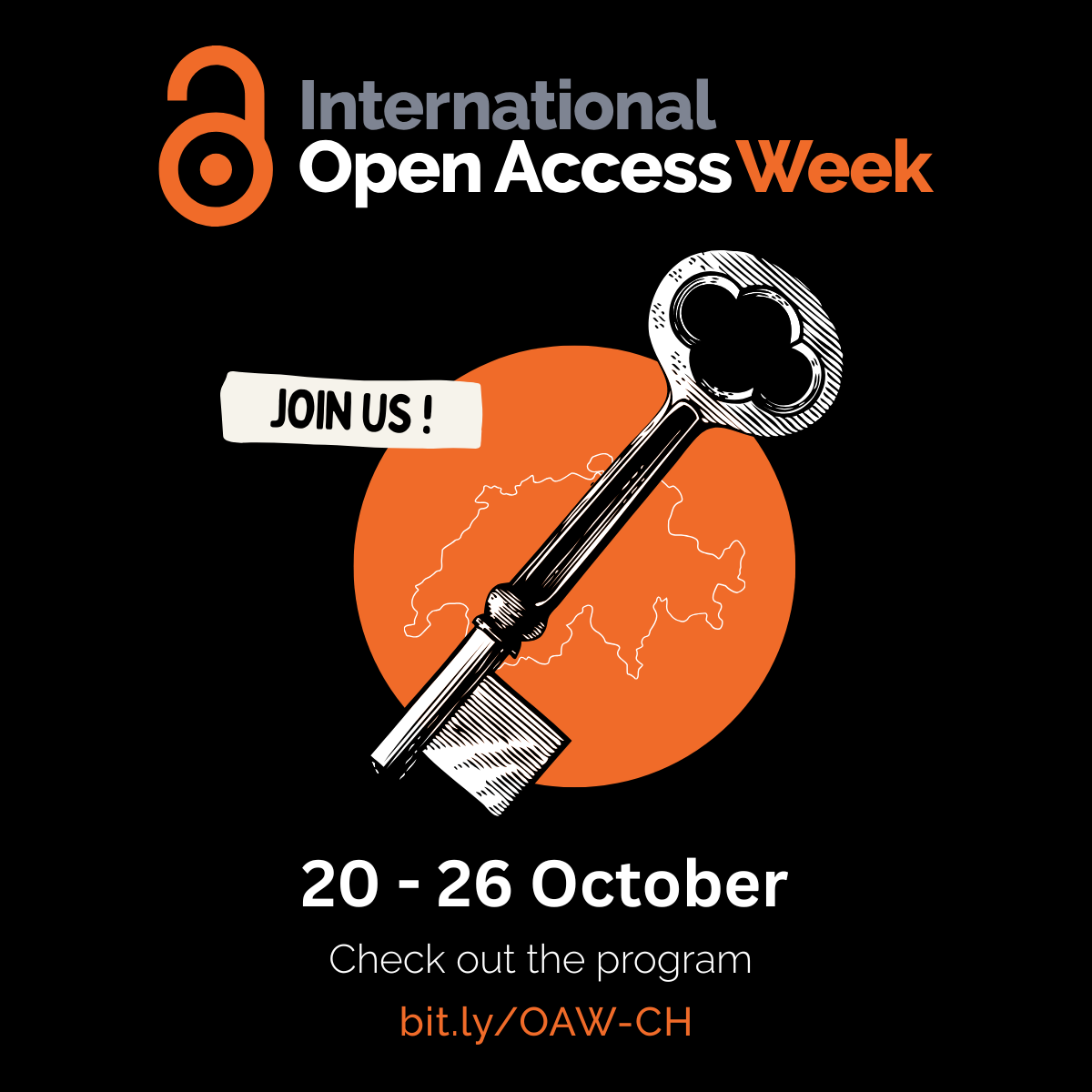Open Science News
Current News
-

Data Protection Day 2026
Learn about data protection and how to handle personal data at UZH. Register now for UZH's Data Protection Day 2026.
-

No Agreement with Springer Nature as of 01 January 2026
The Read & Publish agreement with the publisher Springer ended on 31 December 2025. What are the consequences for reading access and for
-

Lunch & Learn 2026
The new program for Lunch & Learn Open Science 2026 is out and registration is open for the monthly events for 2026.
-

Read & Publish Agreement with Sage ends on 31 Dec 2025
The Read & Publish agreement with the publisher Sage ends on 31 December. What are the consequences for reading access and for publishing?
2025
-

Connecting Switzerland to the European Open Science Cloud (EOSC): A SENPro Community Workshop
The SENPro project team invites all Swiss reseachers to a national community workshop dedicated to Switzerland’s future participation in
-

Open Science Services Advent Calendar
This December, the Open Science Services (University Library) invite you to explore the world of open science through a fun and informative advent
-

Open Innovation in Life Sciences Conference 2025
The Open Innovation in Life Sciences (OILS) Conference takes place on the 23rd of October 2025 at UZH Campus Irchel.
-

International Open Access Week 2025
The International Open Access Week 2025 will take place worldwide from October 20 to 26, 2025. This year's theme for the campaign week is “Who
-
UZH Projects Receive Funding for Open Science
Starting in July 2025 and January 2026, 20 projects led by or with involvement by members of UZH will receive funding from swissuniversities as
-

New call by swissuniversities for Open Science projects
swissuniversities has published a new call for proposals in the Open Science II program. Researchers at the University of Zurich can now submit